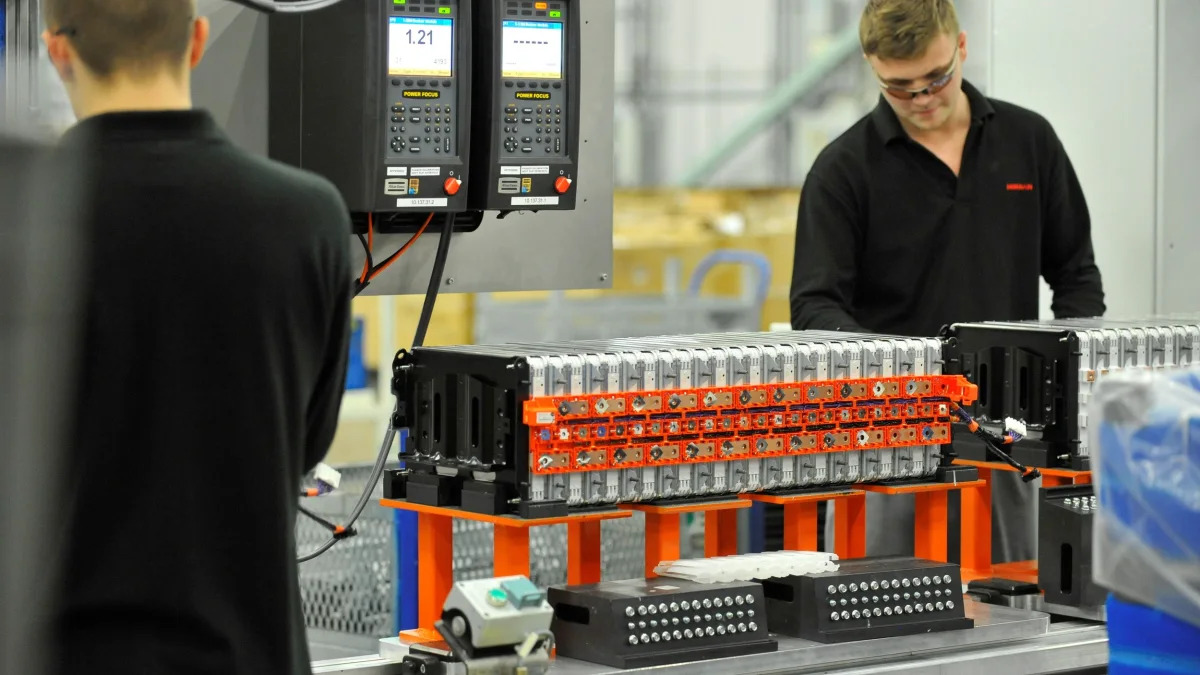AAA is none too pleased about automakers eliminating spare tires from new vehicles. While run-flat tires and patch kits help save weight, AAA says the minimal fuel economy improvements aren't worth the downside of leaving drivers stranded on the side of the road. "Consumers may mistakenly believe that inflator kits are a one-size-fits-all alternative to installing a spare tire," says AAA's managing director of Automotive Engineering and Repair, John Nielsen. "The reality is these kits can accommodate specific types of tire damage, but having the option to install a spare tire can save stranded drivers time and money." Read more at Green Car Reports, and in the statement from AAA.
Tesla has a hidden option for a 72-amp onboard charger for the Model X. A customer discovered the $1,000 option in Tesla's online configurator by typing "charger" without quotation marks in the search field. The 72-amp onboard charger allows drivers to take advantage of faster charging times from high-power AC chargers. The Model X offers no retrofit option for the 72-amp charger, meaning buyers must specify the option upon ordering. Read more at Hybrid Cars, or from Teslarati.
Nissan and Eaton are teaming up to create commercially viable energy storage systems using second-life EV batteries. As Nissan's Robert Lujan says, "The batteries as power storage units far outlast the typical life of a car," giving them potential for grid-connected and off-grid energy storage alike. The first system uses a retired Nissan Leaf battery for solar energy storage. In addition to increasing grid stability and aiding the deployment of renewable energy, second-life battery solutions reduce waste and the consumption of resources to build the batteries. Read more at Green Car Congress, or in the press release below.
• Nissan partners with Eaton to provide a sustainable system for battery reuse
• The partnership announcement comes as further evidence of Nissan's commitment to COP21 – the 2015 Paris Climate Conference
• Nissan is paving the way to a sustainable, zero-emissions future for their customers and future generations
PARIS 8th December 2015: Nissan today announced a landmark partnership with power management specialists, Eaton to ensure that the batteries that power electric vehicles work to mitigate the impact of climate change long after the life of the car.
Nissan and Eaton will combine their respective expertise in lithium-ion batteries and power electronics respectively, to bring reliable and cost-competitive energy storage and control technologies to the market.
The partnership will focus on creating commercially viable energy storage and control centres that will provide a sustainable 'second life' for Nissan's lithium-ion batteries after their automotive usage. With more than 70 years of electric vehicle heritage and over 50 years of experience in power electronics, Nissan and Eaton are primed to take on the challenge.
Robert Lujan, Electric Vehicle Director, Nissan Global: "The batteries as power storage units far outlast the typical life of a car. In order to bring a commercially viable solution to the market, it requires not only the battery expertise of Nissan, but also the experience in power management, control and integration that Eaton offers. This partnership is the first step in delivering a real world system for our customers in the near future."
The first module to be deployed will combine second-life LEAF batteries with Eaton's uninterruptable power supply (UPS) technology and solar PV to create a stand-alone energy storage and control package that will allow customers to manage energy consumption and supply, whilst connected to, or independent of, the grid.
The storage and control module will offer an affordable, long-term method for harnessing clean energy, further facilitating the deployment of renewable energy and increased grid stability and efficiency.
"Having produced our own batteries, at our leading manufacturing sites worldwide, for many years; we will now be able to expand the life of our automotive batteries therefore reducing the need to use additional resources from the planet to produce new batteries" highlighted Lujan.
Cyrille Brisson, Vice President Marketing, Eaton Electrical EMEA: "These systems will really facilitate the wider adoption and deployment of renewable generation; giving people greater control over their energy supply and consumption.
"The wide-ranging benefits of such a unit include continuity of supply, increased grid stability and efficiency, avoidance of peak energy tariffs and a reduction in the reliance on expensive fuels like diesel to compensate for no-grid or poor-grid situations."
The partnership announcement was made during the United Nations Framework Convention on Climate Change (COP21), for which the Renault-Nissan Alliance is providing a fleet of two hundred 100% electric vehicles, including the best-selling Nissan LEAF, for participants.
Once again demonstrating Nissan's commitment to identifying and implementing technologies to pave the way towards a Zero Emissions future; the new Nissan LEAF 30 kWh, has an extended range of up to 250 km on a single charge - enough for the average owner to enjoy an extra day of driving each week.
For more information about Nissan products, services and the brand's commitment to sustainable mobility, visit www.nissan.eu/experience-nissan.html













Sign in to post
Please sign in to leave a comment.
Continue